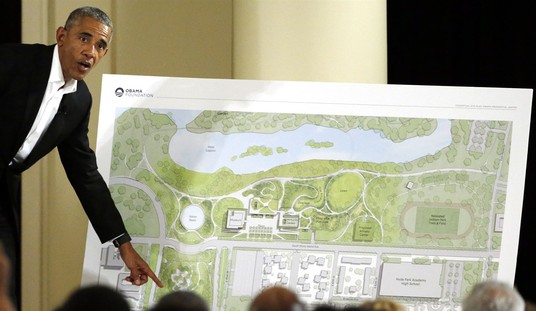WASHINGTON – President Obama, who proved unusually reluctant during his first term in office to meet with lawmakers to hammer out differences, has launched what friend and foe alike are referring to as “a charm offensive” to help drive policies more to his liking.
The president dined with 12 Republican senators at the Jefferson Hotel, about two blocks from the White House, on March 6 with the participants universally expressing positive judgments on the event — especially since Obama picked up the tab.
The purpose of the private get-together, according to Sen. Dan Coats (R-Ind.), one of the participants, was to “discuss the critical challenges facing our country.”
“This outreach is long overdue and if the White House is serious about addressing our fiscal crisis, growing the economy and helping Americans find jobs, then it must abandon campaign tactics and focus on working with Congress,” Coats said.
Obama met the following day with Rep. Paul Ryan (R-Wis.), chairman of the House Budget Committee, and Rep. Chris Van Hollen (D-Md.), the panel’s ranking member, over lunch, resulting in what Ryan characterized as “a frank discussion” about government spending.
And the White House announced that next week the president is traveling to Capitol Hill to meet separately with the Democratic and Republican caucuses in both the House and Senate to discuss his legislative priorities.
“We have numerous challenges facing the country and Republicans have offered the president serious solutions to shrink Washington spending and grow the economy,” said Sen. Mitch McConnell, of Kentucky, the Republican leader. “And we will have an opportunity to discuss them with the president at the lunch.”
Rep. Nancy Pelosi (D-Calif.), the House Democratic keader, said both sides “seem to be pleased” with the results thus far.
“They talked about immigration, debt limit, issues of that kind,” she said. “I think that that’s always good. I think, as one who has been a leader in the Congress for a while, I always think it’s very important to understand the motivation of members and what the possibilities are in terms of courage. And so I think it’s important that they all get to know each other better.”
The sudden swirl of activity doesn’t mean Obama is transforming into a 21st century version of former President Lyndon Johnson, who famously phoned lawmakers at all hours of the day and night to register his pleasure or disdain. But it does indicate a change in strategy for a president facing difficult partisan terrain on issues ranging from the budget deficit to immigration to gun violence.
Jay Carney, the president’s press secretary, said Obama is actually reverting to an old strategy.
“He (Obama) engaged consistently with Congress, especially in the first two years, and consistently with Congress, including leaders of the Republican Party after the midterm elections through the summer of 2011,” Carney said. “I think there is ample data to prove that point. And he did it in numerous ways — in small groups, telephone conversations, meetings in the Oval Office, meetings in the residence.”
Then came the showdown over the “fiscal cliff” when congressional Republicans withheld support for raising the nation’s debt limit unless the president agreed to strict budget cuts. A crisis was avoided but Obama and House Speaker John Boehner (R-Ohio) failed to reach a budget accommodation referred to as a “grand bargain.” Thereafter the two sides rarely spoke.
Now, with the process known as sequestration slashing $85 billion from the budget this fiscal year, $1 trillion over the next nine years, Carney said “there is an opportunity here to do what some members of Congress and leaders have said they would like to do, and we agree, and that is return to some sense of normalcy here, regular order, engage in a budget process and negotiation and debate that hopefully produces a bipartisan compromise.”
Carney acknowledged the two sides “don’t have to agree on everything, we don’t have to resolve all of our differences in order to move forward on finding solutions to the challenges that we face, and recognizing that there is a bipartisan consensus in the country on so many of these issues.” The president is encouraged, he said, “by some of the progress that we’ve seen — on gun violence, on immigration reform — on Capitol Hill, and he hopes to build on that moving forward.”
Thus far the two sides appear to be operating under a white flag. Rep. Eric Cantor of Virginia, the House Republican floor leader, said this week that “we remain committed to trying to focus on resolving problems — we remain committed to trying to help those who are unemployed.” But Carney acknowledged that the White House is “not naïve about the challenges that we still face.”
“They exist and there are differences,” he said.
And those are coming up quickly. In lieu of a budget, the House this week passed a continuing resolution to keep the government funded to Sept. 30 – the end of the federal fiscal year. It includes the dictates of sequestration and won’t pass the Senate intact, setting the stage for bruising negotiations. Failure to pass a CR could force the federal government to shut down on March 27.
Van Hollen said the package passed by the House comes “at the expense of job creation and economic growth.”
“The GOP is dead set on balancing the budget on the backs of working families, seniors, and kids’ education – everything is on the chopping block except tax breaks for special interests and the very wealthy,” he said. “The American people were given a clear choice during the last election cycle and they rejected the plan advocated by House Republicans. But instead of listening, they seem to be doubling down on a failed approach.”
Obama, meanwhile, is hoping the two sides can get together on legislation replacing sequestration, which he fears will boost unemployment and, perhaps, lead to another recession. His concerns are not matched by Republicans who are unwilling to consider alternative legislation if it increases taxes in any way.
“As I’ve made clear many times, sequestration will remain in effect until cuts and reforms are put in place that put us on a path to balance the budget over the next 10 years,” Boehner said. “There are smarter ways to cut spending, and that’s why the House has acted twice over the last year to replace the sequester.”
Regardless, Carney said the White House will “continue to engage with Republicans as well as Democrats.”
“He (Obama) will continue to speak clearly about what his priorities are,” Carney said. “He will make clear that, for example, we’re disappointed that the choice was made by Republicans to allow the so-called sequester to take effect, with all of the negative consequences that result. But he also believes we can move forward and try to address these other challenges, and that’s part of what’s happening.”









Join the conversation as a VIP Member